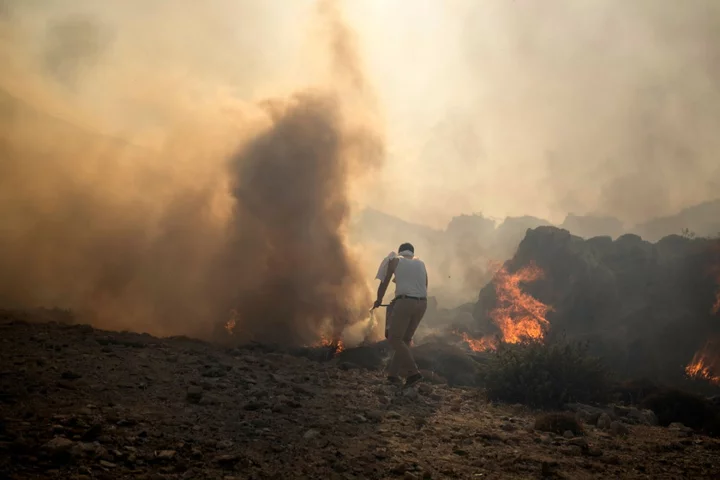
Are Greece wildfires caused by climate change?
Wildfires have raged across Greece for seven consecutive days, triggering large-scale evacuations, rescue flights for British tourists and warnings from officials that things may yet get worse. While the cause of the blazes has not officially been identified, local authorities have suggested at least some could have been the work of arsonists. But climate science and fire risk specialists say it’s undeniable that rising temperatures and prolonged heatwaves mean the fires in the Mediterranean country have spread faster and burned over larger areas. Why are the wildfires so severe in Greece? Over the past few weeks, forest fires have erupted in several parts of Europe – including Switzerland, Italy, Turkey, Croatia, and Spain – as a heatwave sweeps the continent. But Greece has been the worst hit. According to a government spokesperson, an average of 50 wildfires broke out daily for 12 consecutive days in July, with 64 recorded in one weekend. Dr Matthew Kasoar at Imperial College’s Leverhulme Centre for Wildfires, Environment and Society told The Independent that the tinder-dry conditions would make it easier for them to spread. He said: “Fire risk increases rapidly when there are periods of prolonged hot weather, which allow the soil and vegetation to completely dry out.” “Climate change has increased the severity, frequency, and duration of heatwaves when they occur,” he added, as temperatures on the southern Greek mainland rose as high as 45C (113 degrees Fahrenheit) this month. “A lot of the wildfires we’re seeing in Greece have been in areas with shrubby vegetation,” climate science expert Dr Nigel Arnell said. A study by the University of Florida found that spot fires tend to spread further from their original fire perimeter in areas where woody plants such as shrubs and trees replace herbaceous plants like grasses. Is human-induced climate change responsible for the fires? Cambridge professor Adam Pellegrini, who is an expert in forest ecosystems and climate change, said that one of the best examples of anthropogenic, or human-caused climate change contributing to fire activity comes from the western United States. “A 2016 study looked at the area that was burned in a year in the western forests, as well as weather and aridity condition,” he explained. “The researchers ran a model that simulated climate with and without anthropogenic [greenhouse gas] emissions. “Under these climate simulations, which have uncertainties, they found there was a high likelihood that you wouldn’t see these fires that we see now, without climate change,” Dr Pellegrini continued. The study showed that human-induced climate change contributed to an additional 4.2 million hectares of forest being affected by fire during 1984–2015 – double the forest fire area expected without it. “That was done in the western US but those are the kinds of analyses that are required [for the wildfires in Europe]”, Dr Pellegrini said. “My guess is people will now be trying to do that.” An analysis by the World Weather Attribution network found that the recent heatwaves in Europe and the United States would have been “virtually impossible” without human-caused climate change. According to the study, climate change meant this year’s heatwave in Europe was 2.5C hotter. Are these extreme weather events preventable? The way to reduce the increase in heat and drought, and the frequency with which they occur, is stopping greenhouse gas emissions, Dr Pellegrini said, adding: “That is the number one way to do it.” Better ways to adapt and mitigate the damage from wildfires include controlled burns during a cooler, wetter time of the year. “That way you burn out the fuel for the fires, so if there’s a really hot and dry year, hopefully a forest fire won’t be as intense,” he added. Limitations include the high cost of controlled burns, as well as accessibility issues in remote areas such as Siberia, where forest fires have raged since last year. Another way to reduce fire risk is through animal grazing, Imperial College researcher Oliver Perkins explained. “In fire-prone regions of Spain, goat farmers are paid, not to produce food but, to reduce fire risk by grazing flammable vegetation.” Is there a threat of wildfires in the UK? Dr Kasoar warned that almost every region in the world is facing more intense and more frequent hot weather, and the UK is no exception. “We have seen record-breaking heat and fires in the south of the UK last summer, and with the country’s largest fires being recorded in the last few years,” he added. “Unless we stabilise global temperatures by reducing global emissions to net zero, wildfires will continue to become an ever more present risk here in the UK and across many other parts of the world. Read More Greece fires – live: Tourists in Rhodes and Corfu evacuated as Croatia also battles wildfires Where are the Italy wildfires as temperatures rise to 47.6C on Sicliy? Simon Calder on Greece: Latest travel advice for tourists as wildfires continue to ravage Rhodes and Corfu Where are the Italy wildfires as temperatures rise to 47.6C? Are Greece wildfires caused by climate change? Greece fires: Rhodes and Corfu tourists evacuated as Croatia also battles wildfires
1970-01-01 08:00
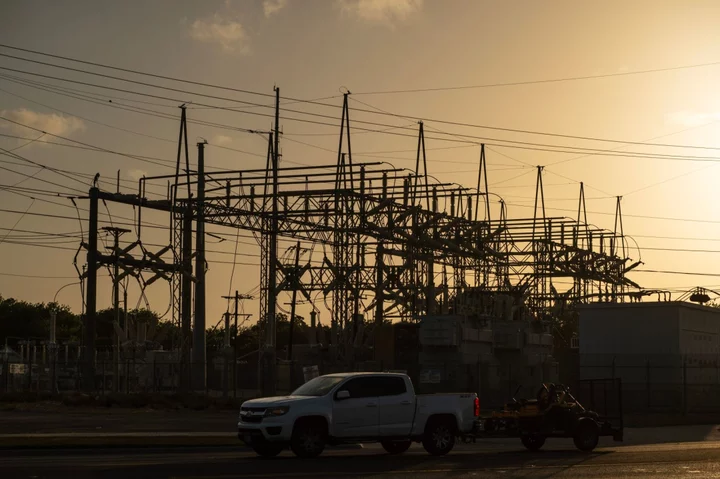
California Issues Emergency Watch for Power Grid Amid Heat Wave
California’s main power grid operator issued an emergency watch notice for Tuesday evening as residents cranked up air
1970-01-01 08:00

Greenpeace says ECB has broken climate pledge with end of bond buying
FRANKFURT Activist group Greenpeace said on Wednesday the European Central Bank has broken a pledge to join the
1970-01-01 08:00

Congress Wades Into Self-Driving Debate With New US House Bills
Congress is wading into the debate over whether automakers should be allowed to sell hundreds of thousands of
1970-01-01 08:00

Florida ocean temps surge to 100 degrees as mass coral bleaching event is found in some reefs
An urgent rescue operation is underway to save Florida coral species from extinction as a mass bleaching event and die-off from unprecedented water temperatures spreads across the Florida Keys.
1970-01-01 08:00

Rhodes fires: Family into military dinghies during beach rescue
Paul Watson, from Cockermouth, was just days into a holiday in Rhodes when his hotel was evacuated.
1970-01-01 08:00
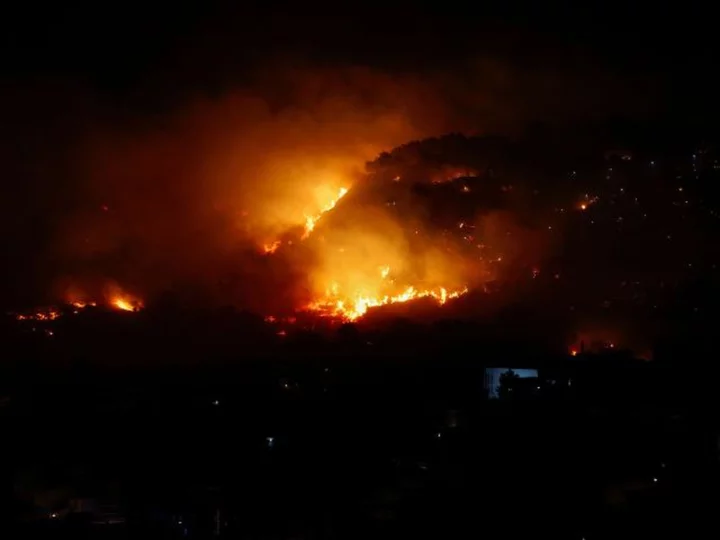
Wildfires, heat and giant hail as Italy grapples with extreme weather
Italy is facing multiple kinds of extreme weather at once, with some parts of the country scorched by blistering heat, while others are battered by deadly storms.
1970-01-01 08:00

Rhodes honeymoon 'wrecked' after hotel evacuation
The couple from Stoke-on-Trent said their holiday had been a "rollercoaster".
1970-01-01 08:00
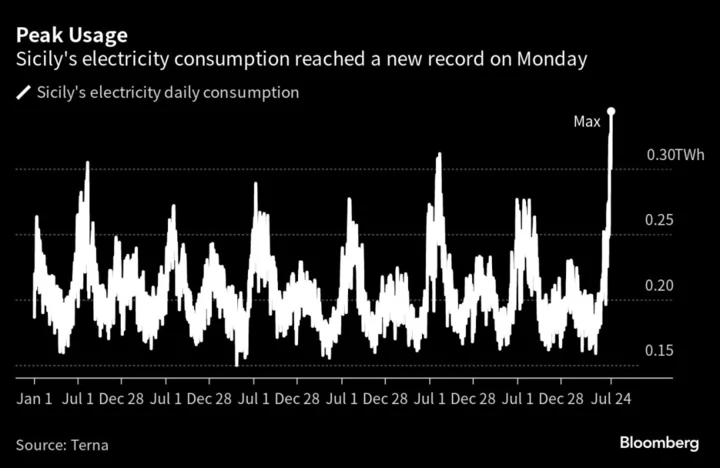
Epicenter of Europe’s Heat Wave Shifts to Fire-Ravaged Greece
The epicenter of Europe’s heat wave is shifting back to fire-ravaged Greece, as temperatures are set to hit
1970-01-01 08:00
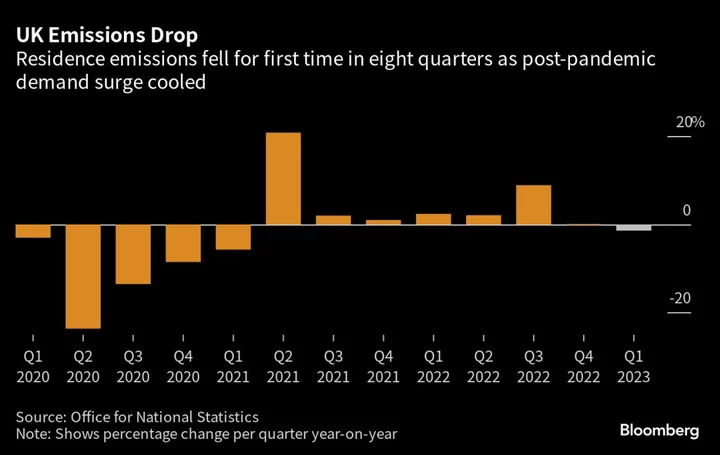
UK CO2 Emissions Drop For The First Time in Two Years, ONS Says
UK greenhouse gas emissions dropped in the first quarter for the first time in two years, as the
1970-01-01 08:00

South African Electricity Minister Attacks Climate Finance Pact
South Africa’s electricity minister attacked the country’s groundbreaking $8.5 billion climate finance pact with some of the world’s
1970-01-01 08:00

Hot Oceans Are Fueling Weather Disasters Around the World
Heat searing enough to knock out mobile phones. Wildfire smoke that turns the skies an apocalyptic orange. Flash
1970-01-01 08:00
